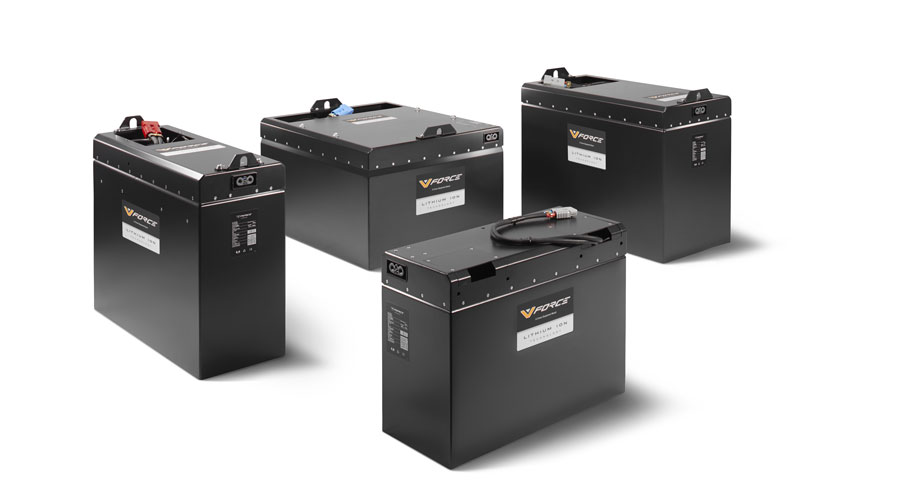Exploring the Forklift Power Frontier

While adoption of lithium-ion technology by the material handling industry is gaining momentum, it can sometimes leave those interested in its advantages feeling lost. Far from the “plug and play” solution that most customers desire, the integration of lithium-ion power into an existing operation can be a daunting task, especially when trying to combine off-the-shelf products from multiple sources.
When customers make the wrong choice for their forklift fleets, it can create misfires that lead to downtime, lost productivity, reduced runtime or, worse yet, forklift damage and risk of accidents and operator injury. Without the appropriate lithium-ion integration and management systems, you may have heard stories that range from operators being left in the air, elevated, on a stockpicker while performing their order-picking responsibilities to simply batteries’ inability to maintain a state-of-charge that lasts longer than minutes. So how can users of new power technologies aim for increased performance and ensure they hit their target?
Assured Performance Through Integration
Having a single-source manufacturer for forklifts, batteries and chargers, offers integration advantages that streamline the path to success. A single-source manufacturer has the ability to access each product and its individual components at their deepest levels. The forklift OEM can also draw upon a breadth of experience with material handling applications. This comprehensive understanding of the many facets of material handling environments provides a basis for identifying solutions that address specific issues without creating unintended consequences.
Full integration of energy solutions can provide a level of assurance that forklifts, batteries and chargers have been designed and tested to operate as a system. In other words, they have the potential to become a plug and play solution that quickly produces the desired results.
Assured Performance Through UL Testing
UL certification is accepted as an accredited standard for battery safety. It is accredited by the American National Standards Institute (ANSI) and the Standards Council of Canada (SCC) as a Standards Development Organization (SDO). Essentially, UL provides specific standardized testing that batteries must undergo in order to receive certification. This standard evaluates the electrical energy storage assembly’s ability to safely withstand simulated abuse conditions and prevents exposure of customers to hazards as a result of the abuse.
Crown’s V-Force® lithium-ion batteries undergo testing to achieve UL certification. These tests help confirm that the batteries are safe to operate. Users can be assured that V-Force lithium-ion batteries have undergone the required testing and have met the UL testing requirements.
Passing the Test
UL certification testing spans many areas, such as electrical testing, mechanical testing, environmental testing and tolerance to internal cell failure testing, along with a test program for secondary lithium-ion cells. The list of tests that V-Force® batteries must complete include:
Electrical Testing
- Overcharge test
- Short circuit test
- Overdischarge protection test
- Temperature test
- Imbalanced charging test
- Dielectric voltage withstand
- Isolation resistance
- Continuity test
- Failure of cooling/Thermal stability system test
Mechanical Testing
- Rotation test
- Vibration endurance test
- Shock test
- Drop test
- Crush test
Environmental Testing
- Thermal cycling
- Salt spray test
- Immersion test
- External fire exposure test
The breadth of testing applied to V-Force lithium-ion batteries confirms that they will perform as intended. It denotes that a specific safety standard has been met and can be trusted.
Anyone who says “It’s about the journey and not the destination” hasn’t endured the pain of implementing a system of forklift power products that haven’t been designed to work together.
To learn more about Crown’s V-Force Energy Solutions, visit crown.com.